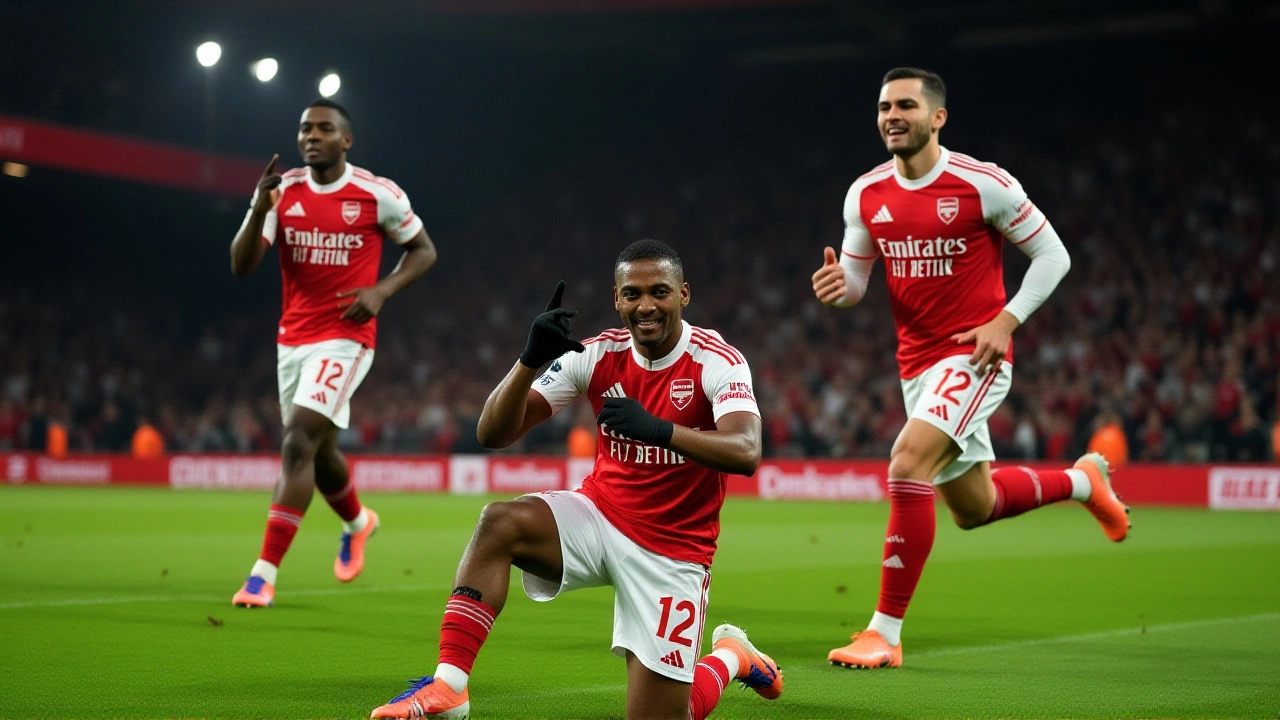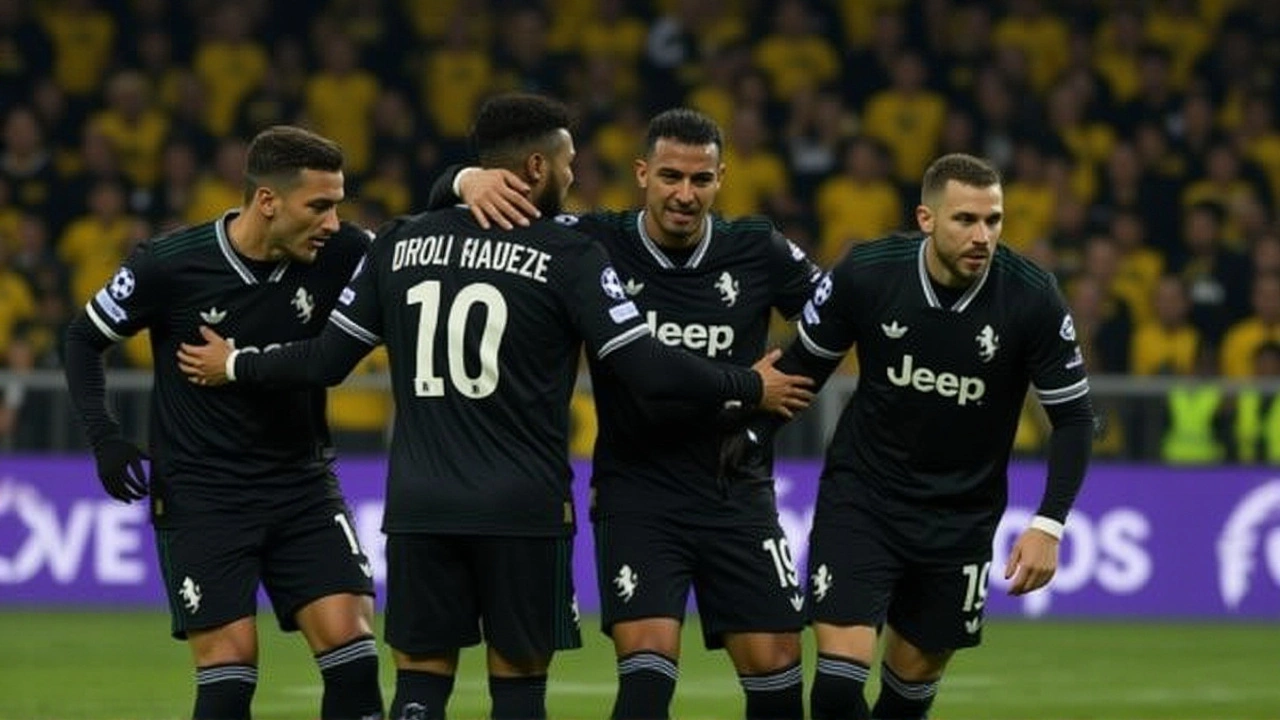When Juventus Football Club S.p.A. needed a miracle, it found one in the freezing Arctic air of Bodø. On Tuesday, November 25, 2025, the Italian giants clawed back from two deficits to beat FK Bodø/Glimt 3-2 in a Champions League thriller that saved their European campaign. The winning goal? A stoppage-time strike by Canadian forward Jonathan David — his third of the season — after a chaotic scramble sparked by Turkish teen Kenan Yildiz. But the real story? The unlikely partnership between two Concacaf stars: Weston McKennie, the U.S. midfielder whose header gave Juventus the lead, and David, the Canadian who delivered the dagger.
A Season on the Brink
Juventus entered Matchday 5 with zero wins in four games — three draws, one loss. Six points from eight matches was a death sentence in the new 36-team Champions League format. Only the top eight advance automatically. Teams ranked 9th through 24th? They fight for eight playoff spots. Juventus sat at 24th, one point from the drop zone. Lose here, and their Champions League dreams were over. Win? Still a long shot — but alive.
The Frozen Battlefield
Aspmyra Stadion, tucked under the Arctic Circle at Aspmyra 1, 8006 Bodø, Norway, was a frozen cauldron. Wind howled at 30 mph. Snowflakes danced around the pitch. Bodø/Glimt, Norway’s surprise European regulars, thrived in this. They’ve reached the knockout stage twice in the last three seasons. Their opener? A gift. Norwegian forward Ole Didrik Blomberg pounced on a loose ball at the back post, smashing it past Wojciech Szczęsny in the 12th minute. The home crowd roared. Juventus looked shell-shocked.
Equalizer came in the 27th. Belgian striker Loïs Openda, who’s been quiet all season, twisted and turned before firing low past goalkeeper Sondre Rossbach. Then, the moment that shifted everything. In the 41st minute, Weston McKennie rose like a man possessed — 6’1”, 175 lbs, and suddenly airborne — to meet a cross from the right. Headed it into the top corner. His first goal of the 2025/26 season. His eighth in Champions League history. He pointed to the sky. The Juventus bench erupted.
Back to Square One — Then David’s Moment
But Bodø/Glimt wouldn’t die. In the 56th minute, a handball in the box by Juventus defender Gleison Bremer led to a penalty. Norwegian midfielder Sondre Brunstad Fet stepped up, cool as ice, and slotted it home. 2-2. The stadium shook. Juventus looked rattled. Coach Luciano Spalletti had to act. He sent on 19-year-old Kenan Yildiz at halftime. A decision that would define the night.
Yildiz didn’t score. But he created everything. In the 89th minute, he cut inside from the left, fired a low shot that Rossbach parried — but not far. The ball bounced straight to Jonathan David, who had drifted into the box unnoticed. One touch. One strike. Past the diving keeper. The net bulged. 3-2. The away fans screamed. The home crowd fell silent. David dropped to his knees, hands on his head. He’d done it again.

The Concacaf Connection
ESPN called them "Concacaf rivals." And they are — in national team politics, in jersey sales, in media coverage. But on that pitch, they were teammates in the truest sense. McKennie, 27, born in Texas, raised in the U.S. system. David, 24, from Quebec, raised on Montreal’s gritty streets. Two players from the same region, playing for the same club, delivering the same result. McKennie’s goal was the spark. David’s was the flame. Together, they turned a dying campaign into a lifeline.
It’s no coincidence. The U.S. and Canada have never had more depth in Europe. Christian Pulisic holds the American record with 12 Champions League goals. David is now tied for third among Canadians — behind Alphonso Davies and Jonathan Osorio. But this? This was the kind of night that elevates a player from "good" to "legendary in the moment."
What This Means for Juventus
Spalletti said it best: "A few players are not fully fit or in form, and we need to do this in a real match situation, not in the neutrality of training, because for speed of thought and movement, you need that scenario."
Juventus now has six points. Still only 21st in the table. But they’re in the playoff zone. Three games remain: Bayer Leverkusen (home), Benfica (away), PSV Eindhoven (home). Each is winnable. Each is critical. They need at least five more points to guarantee a top-24 finish. That means one win and two draws. Or two wins and one loss. Possible? Yes. Likely? Not yet.
But now they’ve tasted it. They’ve won under pressure. They’ve seen their stars rise when it mattered. And for a club that hasn’t won the Champions League since 1996, that’s more than points — it’s belief.

What’s Next for Bodø/Glimt?
They lost. But they didn’t collapse. They led twice. They held Juventus at bay for 85 minutes. Their coach, Trond Henriksen, called it "a moral victory." Bodø/Glimt is now 1-3-1 in the group. They’re out of contention — but they’ve proven they belong. Three straight Champions League campaigns. That’s more than most Norwegian clubs achieve in a decade.
Frequently Asked Questions
How did Weston McKennie’s goal impact his standing with the U.S. national team?
McKennie’s goal was his first in club play since March 2025 and his eighth in Champions League history — a milestone that could revive his chances of returning to the U.S. national team under coach Mauricio Pochettino. He’d been left out of two recent camps due to inconsistent form, but this performance, combined with his work rate and leadership, makes him a strong candidate for the January 2026 World Cup qualifiers against Jamaica and Panama.
Why is Jonathan David’s goal so significant for Canadian soccer?
David’s winner was his 11th goal in European competition this season and his 13th in Champions League play — tying him for the most by a Canadian in the tournament’s history. More importantly, it was his first Champions League winner in stoppage time, a moment that echoes Alphonso Davies’ 2020 goal for Bayern Munich. It signals Canada’s growing influence in elite European football, not just as participants, but as decisive players.
What’s the format of the 2025/26 Champions League league phase?
The new format features 36 teams in a single league table, each playing eight matches (four home, four away). The top eight qualify directly for the round of 16. Teams ranked 9th to 24th enter a two-legged playoff. The bottom 12 are eliminated. This replaces the old group stage and makes every match critical — especially for clubs like Juventus, who entered this game winless.
How did Kenan Yildiz contribute to all three Juventus goals?
Yildiz, brought on at halftime, assisted McKennie’s header with a precise cross, set up Openda’s equalizer with a cutback that forced a defensive error, and then his 89th-minute shot — saved by Rossbach — led directly to David’s winner. ESPN’s data tracking confirmed he was involved in every touch leading to the final three goals. At 19, he’s becoming Juventus’ secret weapon.
Can Juventus still win the Champions League this season?
It’s unlikely, but not impossible. They’d need to win their remaining three games, finish in the top eight, then survive the knockout rounds — a tall order against teams like Real Madrid, Manchester City, and Bayern Munich. But this win proved they can perform under pressure. If they keep this momentum, they could surprise everyone. For now, qualifying for the playoffs is the realistic goal.
Why is Bodø/Glimt so strong in European competition despite being from Norway?
Bodø/Glimt’s success stems from a data-driven recruitment strategy, aggressive pressing, and home-field advantage in extreme weather. They’ve signed undervalued Scandinavian talent and developed a tactical identity under coach Trond Henriksen. Their 2023/24 run to the knockout stage shocked Europe. They’re not a fluke — they’re a blueprint for small-market clubs to compete.
